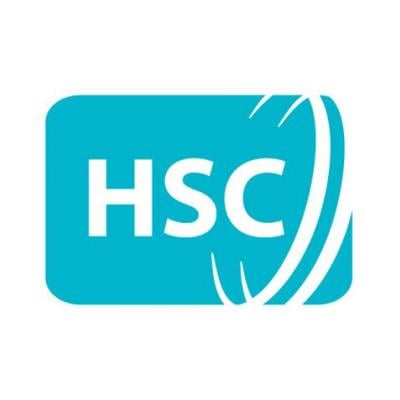Parental mental health under the spotlight in Belfast
Mental health conference at Queen's University Belfast looks at supporting the whole family, not just the patient
An initiative, aimed at giving more support to parents with mental health issues, will be highlighted during an international conference in Belfast this week.
Think Family Northern Ireland aims to improve how services are planned and delivered to parents with mental health issues and their families in partnership with the active and effective involvement of service users and carers.
In some families where a parent has a mental issue, the children’s or the adult carers own mental health and well-being can be affected.
Previously the parent was treated as an individual, with little acknowledgement of how the mental health issue can impact upon family members.
Mental health professionals are embedding family focused approaches into practice when assessing and planning treatment for adults with a mental health issue.
Staff dealing with parents with mental health problems are encouraged to use The Family Model to help service planning and delivery.
Health and Social Care Board’s Mary Donaghy says many parents with mental health issues cope very well most of the time.
“However, sometimes when their mental health dips they may need a little bit more support. This work takes a ‘whole family approach’.
“The Family Model supports staff to have an appreciation of the different influences within the family that can impact upon the recovery of the parent with mental health issues.
“It’s about involving the whole family, ensuring that you include them in conversations, use their knowledge and information to help staff plan care and treatment for the family member with the mental health issue. It’s also about getting in early and quickly with support services so that they don’t reach crisis point,” she said.
A pilot scheme is currently running within the South Eastern Health and Social Care Trust.
A range of staff including psychiatrists, psychologists, nurses, social workers and adult health professionals, have joined with charities, Mindwise and Action for Children to put the family at the heart of the recovery.
Neill Irvine, whose father suffers from schizophrenia, said in the past his concerns and feelings were often overlooked, despite being his father’s primary carer.
“The fact I wasn’t listened to was a detriment to my own health at times too and added to the concerns of my own family.
“My father’s illness was seen in an individualistic way and the concerns of the family weren’t taken on board.
“The new Think Family initiative is a very encouraging programme especially for those who have a similar background to myself. I feel that if it had been around at a much earlier stage in my life it could definitely have helped my family and, more importantly, my father, with any concerns we had about his illness and supports for ourselves. If any serious actions needed to be taken our concerns would also have been met,” he said.
The Think Family model will be discussed at a Queen’s University conference on 16 May.
‘Health and social care professionals’ family focused practice with parents who have mental illness, their children and families’ will take place at Riddel Hall, Stranmillis Road, Belfast on Monday 16 May 2016 from 12.15pm-4.45pm
It has been organised by the School of Nursing and Midwifery, in partnership with Think Family NI, based at the Health and Social Care Board.
Speakers include Sydney’s Dr Adrian Falkov, author of The Family Model Handbook, who will share his expertise in implementing an integrated approach to supporting mentally ill parents and their children.
Dr Bente Weimand will discuss how changes in Norweigan law mean that it is mandatory to assess whether or not patients have children and to provide necessary support for children of mentally ill patients.
Finland’s Dr Tytti Solantus will look at the Let’s Talk about Children approach employed in her country.
Note to Editors:
- Think Family NI is now part of the established structure of the Children and Young People’s Strategic partnership, one of nine regional subgroups which carry out integrated planning and commissioning for specific groups of children and young people at a particular disadvantage.
- Dr Adrian Falkov is a child and adolescent psychiatrist who trained and practised in London before moving to Sydney. He has worked in frontline clinical practice, research and policy development.
- Dr Bente Weimand is a researcher whose work revolves around families in mental health and their experiences with the health services. She has also developed and evaluated educational programmes that prepare health and social care professionals to engage in family focused practice.
- Dr Tytti Solantus is a child psychiatrist, therapist and researcher. She is head of The Effective Child and Family Programme which focuses on the generational cycle of parental and family problems, including mental health, substance use, criminality, poverty, and refugee experience.
- Dr Anne Grant, conference organiser, is a lecturer in mental health in the School of Nursing and Midwifery at Queen’s University Belfast and a registered mental health nurse.
- Since 2014 she has work closely with the Health and Social Care Board in her contribution to the Northern Irish Think Family Initiative. She is Primary Investigator for a study commissioned by the Board to examine health and social care professionals' family focused practice across Northern Ireland.
- Mary Donaghy has been leading on Think Family work at the Health and Social Care Board from 2009 to 2012 when the work in Northern Ireland was a National Pilot site along with four other sites in the UK under the direction of SCIE.
- Since 2012 the HSCB has continued to lead the way making Phase 2 of Think Family NI core business for the Social Care directorate.

Health and Social Care Board
12-22 Linenhall Street
Belfast
BT2 8BS
United Kingdom
